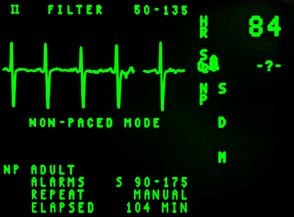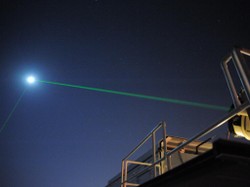A patient's heart stops beating. Nurses roll in the crash cart and resuscitation ensues. After many failed attempts, the medical team reaches a difficult decision. The nurse looks up at the clock and calls the time of death. Twenty minutes later, the patient is sitting upright, fully functional, complaining why they have not been served lunch yet. Lazarus syndrome is a miracle medical scientists have not been able to figure out yet, but they have some ideas that may be close to unveiling this medical mystery.

Lazarus Syndrome-- When the Dead Come Back to Life
by CarleyClagg
An unresponsive patient's heart begins to beat several hours after failed CPR. Does this phenomenon have a scientific explanation behind it or is it simply another chance at life?
Lazarus Syndrome
The biblical Lazarus wasn't the only man to rise from the dead. This modern day miracle is known as Lazarus Syndrome. Lazarus syndrome occurs when patients come back to life after failed attempts of resuscitation. Patients have been announced alive after anywhere from twenty minutes to days after being announced dead. While some patients make complete recoveries, others come back to life only to die days or weeks later. This rare occurrence has only been recorded thirty-eight times after its first recording in 1982. The cause of this phenomenon is unknown, though researchers are beginning to come up with possibilities.
Suspected Causes
Scientists researching lazarus syndrome have no definite answers as to how or why it occurs, but some promising hypotheses have been made. One of the most promising hypotheses has to do with the correlation between Cardiopulmonary Resuscitation (CPR) and electrical impulses of the heart. When the heart stops beating, CPR is necessary in efforts to stabilize a patient. Chest compressions, difibrillation, and oxygen supplement are all utilized tools of CPR. During chest compressions, the heart is placed under constant pressure in order to create artificial circulation of blood throughout the heart and rest of the body. It is suspected that when CPR ceases, the ability for the heart to expand in response to the halt of pressure causes electrical impulses in the heart to fire off, thus restarting the heart. Scientists also believe that high doses of epinephrine play a role in lazarus syndrome as it can help return spontaneous circulation, though further explanation is unknown. Until further research is constructed, the cause of lazarus syndrome will continue to puzzle medical staff and researchers.
You might also like
UAPs, Formerly UFOs, If They Are Real How Can We Explain Their...One dilemma in accepting UAPs is how could they get here? What place close e...
Book Review: The Cambridge Photographic Moon Atlas by Alan Chu...The Cambridge Photographic Moon Atlas by Alan Chu, Wolfgang Paech, and Mario ...
Book Review: Hubble's Universe: Greatest Discoveries and Lates...Hubble's Universe by Terence Dickinson gives readers the most photogenic of 1...




 Credible Online Sources: When and When Not to Believeon 11/13/2015
Credible Online Sources: When and When Not to Believeon 11/13/2015
 5 Sneaky Ways to Enjoy Eating Healthier Snackson 11/10/2015
5 Sneaky Ways to Enjoy Eating Healthier Snackson 11/10/2015
 How I got 5 Items From Dollar Tree for Free and Got Money Backon 11/03/2015
How I got 5 Items From Dollar Tree for Free and Got Money Backon 11/03/2015
 5 Ways your Smartphone Could be Making you Money Right Nowon 11/02/2015
5 Ways your Smartphone Could be Making you Money Right Nowon 11/02/2015



Comments
The article The Lazarus phenomenon, authored December 2007 by Vedamurthy Adhiyaman, Sonja Adhiyaman and Radha Sundaram for the Journal of the Royal Society of Medicine 100(12): 552-557 mentions that The Premature Burial by Edgar Allan Poe may have been based upon what happened to General Robert E. Lee's mother, Ann Hill Carter.
Gail Jarvis reported that possibility in the article Robert E. Lee's Mother for LewRockwell.com Jan. 19, 2005.
Would you happen to have read either article?
There's something else that I'd meant to include in the comment box below.
Wouldn't it also seem like any memorial plaque, any tombstone should include the two death dates? If nothing else, it would make it easier for any agency, any person doing research into the Lazarus syndrome.
Do we know what kind of impact this has on the paper trails regarding death certificates and insurance policies?
It probably wouldn't be more than a matter of days, in which time a death certificate could be issued and an insurance policy starting to be put into effect.
What kind of form would have to be issued after a death certificate in essence becomes invalidated by someone reviving?
In a way, it would seem like a beneficiary should receive a payout unless the policy says that it doesn't apply if the insured dies and then comes back to life.
At the root of this mystery is the fact that we don't understand life.
CarleyClagg, It's too bad that the Lazarus episode did not include an explanation but perhaps its lack is because of the extreme rarity of the occurrence. There's such a thing as too little and too much oxygen, and I'm wondering if sometimes it's a case of passing out from over-oxygenation until the distribution resettles and then coming to. As Frank and Mira say, the supply of oxygen is critical.
I also do not understand how the brain can survive without damage from lack of oxygen. It's one of the puzzling attributes to lazarus syndrome that this does not occur. Mira, that is quite interesting! I would love to read that article.
I've read of yogis who can get their hearts to flatline for hours or even days while they live buried under the earth. I'll go read about it again. Maybe there's life that the machines can't detect, but I'm with Frank: how come the brain can survive without damage in the absence of oxygen?
My first and main question is how, after twenty minutes of not breathing, is the brain not starved of oxygen to such a degree that serious brain damage does not occur.
Second question. Has anyone tried to collect the patients' experiences of the time when they were clinically dead, for this might have something to reveal to us? Has there been any correlation between these extreme cases and near death experiences?
Perhaps these extreme cases raise serious questions about human nature. We do not understand as much as we think we do.
This is interesting, perhaps there are other vital signs of life that our instruments are unable to measure thus declaring the patients dead when they are actually still alive. Or maybe the body comes back to life after a short lapse of inactivity.
I've heard of that happening but I didn't know if it was true or that it had a name. Interesting article.